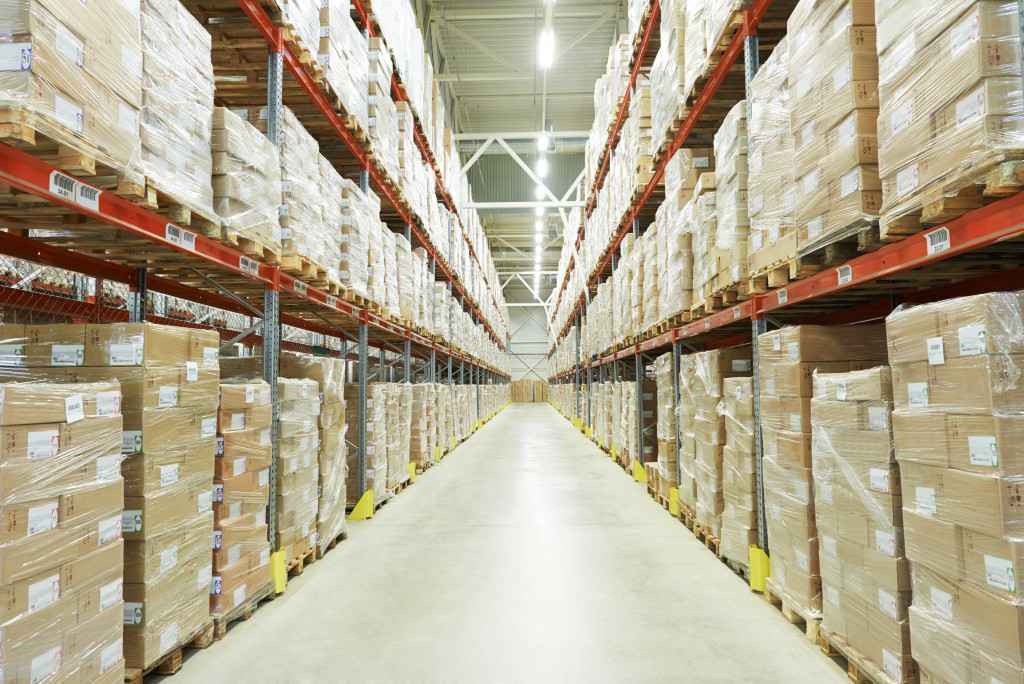Logistics can be a detailed and intricate process requiring business owners to understand the entire system. It includes inventory management, transportation, and delivery. To be successful, business owners need to be able to invest in the necessary resources and infrastructure. It can be costly, but ensuring that products are delivered on time and in the correct quantities is essential.
The logistics process can receive further complications by changes in demand or unexpected disruptions. Businesses must stay prepared for these scenarios by having contingency plans. They also need to have systems in place for tracking inventory levels and monitoring transportation costs. By doing so, they can minimize the impact of any disruptions on their bottom line.
With all those things happening within the logistics operations, it might feel like warehousing is just a tiny piece of the puzzle. However, it could be one of the most vital parts of the process. Here are a few reasons why you should dedicate attention and resources to the warehousing part of logistics.
Transportation Costs
The cost of transportation is always a significant concern for businesses. It can significantly impact the bottom line if you ship products long distances. You can store inventory closer to your customer base by having your warehouse. This strategy can help you reduce transportation costs and get products to market faster.
However, transportation costs will never go away. There will always be fuel costs, driver salaries, and other associated expenses. The goal is to minimize these costs as much as possible by being strategic about your warehousing and distribution.
Inventory Levels

You’ll miss out on sales opportunities if you don’t have enough inventory. If you have too much, you’ll tie up working capital that could get used elsewhere. It’s essential to strike the right balance, and that’s where an effective warehouse management system (WMS) can help.
A good WMS will allow you to track inventory levels in real-time. This information can help you make informed decisions about restocking levels. It can also give you visibility into which products are selling well and which ones aren’t moving as quickly. This information can help you adjust your inventory levels accordingly.
Warehousing allows you to utilize the FIFO (first-in, first-out) method, which can help you manage your inventory levels. The FIFO method ensures that the products that have been in your warehouse the longest are the ones that get shipped out first. This system can help you avoid outdated products and keep your inventory levels balanced.
Customer Service
Your customers expect fast and reliable service. They’ll go to a competitor if they don’t get it from you. That’s why it’s essential to have a well-run warehouse operation.
An efficient warehouse can help you get products out the door quickly. A good WMS will also help you keep track of orders and where they are in the shipping process. This information can be valuable for customer service representatives who need to provide updates to customers. Keeping customers in the dark can lead to frustrated customers and lost sales.
Should You Outsource Warehousing Solutions?
Outsourcing warehousing solutions can be a good option for businesses that don’t have the space or resources to run their operation. It can also be a good solution for businesses that experience spikes in demand.
There are several things to consider before outsourcing warehousing solutions:
- You must ensure that you find a reputable and reliable partner.
- You need to understand the cost of doing so.
- You need to ensure that your partner has the necessary infrastructure.
Outsourcing warehousing solutions include access to additional storage space, labor, and resources. You’ll also get the peace of mind of knowing a professional team is managing your inventory.
Is Warehousing Necessary?
Outsourcing storage solutions can be viable and cost-effective when a business doesn’t have the space or resources to run its warehousing solutions. By partnering with a reputable and reliable provider, a company can access additional storage space, labor, and resources they may not have otherwise.
It can be beneficial during increased demand, when extra storage and workforce may be necessary to keep up with customer demand. Additionally, outsourcing can provide businesses with the peace of mind of knowing that their inventory is in good hands. One good storage solutions provider is BILT Industries. The company has a wide range of experience in the logistics industry and is known for providing excellent customer service.
Conclusion
Warehousing, or at the very least inventory management, is essential in logistics. Fortunately, many options are available to businesses, whether they want to outsource warehousing solutions or manage the process themselves.
The key is finding the right solution for your business that meets your needs and budget. And most importantly, one that will provide the level of service your customers expect and deserve.



